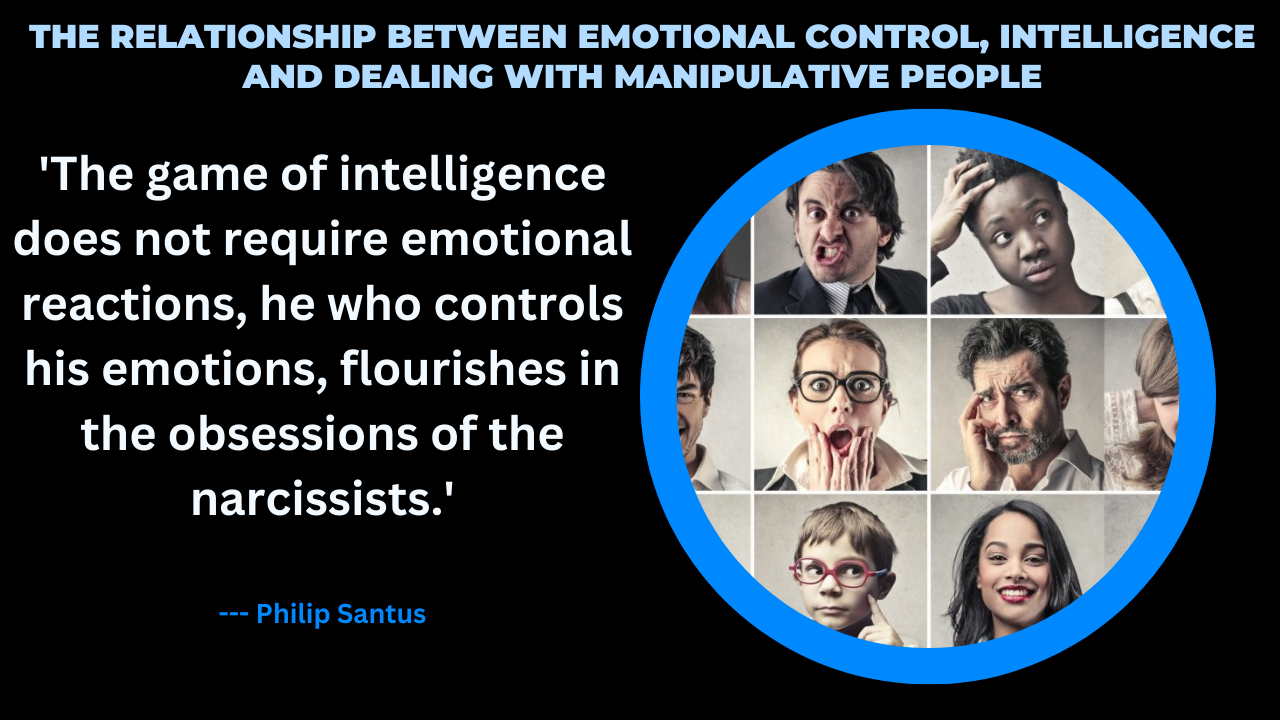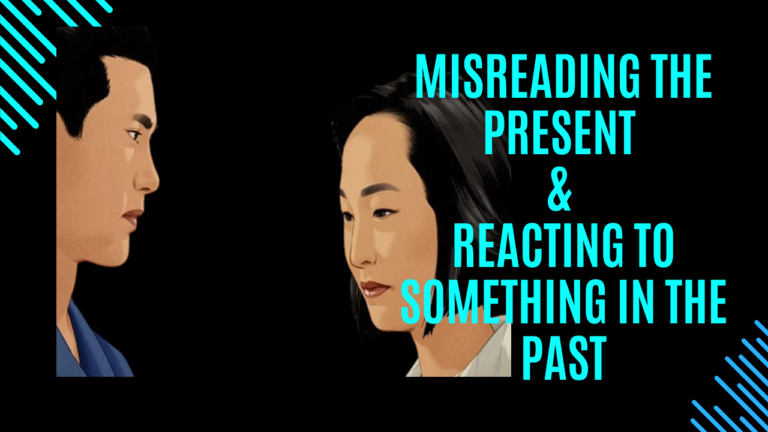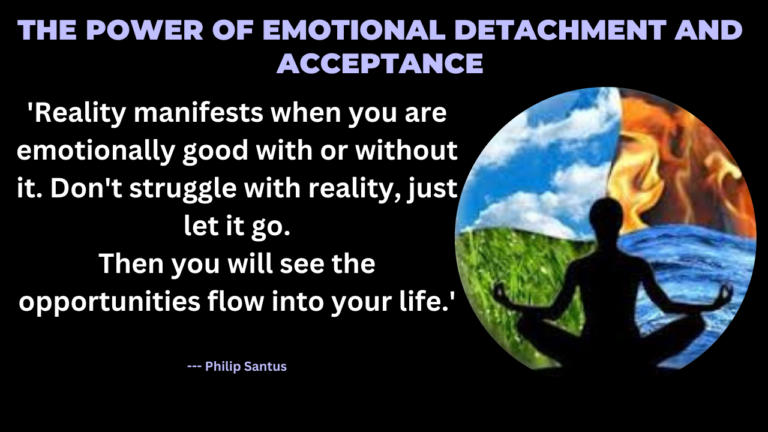THE RELATIONSHIP BETWEEN EMOTIONAL CONTROL, INTELLIGENCE, AND DEALING WITH MANIPULATIVE PEOPLE (My quote and the meaning)
(MY QUOTE)
‘The game of intelligence does not require emotional reactions, he who controls his emotions, flourishes in the obsessions of the narcissists.’ — Philip Santus
YOU CAN LISTEN TO THE PODCAST OR READ AHEAD WITH THE ARTICLES:
THE MEANING:
This quotation touches on the relationship between emotional control, intelligence, and dealing with manipulative individuals, such as narcissists.
It reflects the idea that in the “game” of intelligence—particularly in competitive or manipulative social situations—emotional detachment is a key strategy for thriving in environments where others may try to provoke, control, or manipulate through their narcissistic tendencies. Let’s break it down:
1. “The game of intelligence does not require emotional reactions”:
This phrase suggests that emotional reactions are a liability when it comes to navigating life with intelligence. The “game of intelligence” could refer to various situations—be it social dynamics, negotiations, problem-solving, or dealing with difficult people.
In these situations, reacting emotionally can cloud judgment, compromise strategic thinking, and make one vulnerable to manipulation or influence.
By suggesting that intelligence doesn’t require emotional reactions, I am highlighting that logic, reason, and mental clarity should guide decisions and behavior rather than impulsive emotional responses.
The mind operates best when it is not clouded by emotions like anger, frustration, or fear, which can distort perception and weaken decision-making abilities.
2. “He who controls his emotions“:
This part emphasizes the importance of emotional mastery. The individual who can control or regulate their emotions has a distinct advantage in life’s various social and professional “games.”
Emotional control is often tied to emotional intelligence, which involves understanding one’s emotions, recognizing their triggers, and managing responses in a way that serves long-term goals rather than short-term satisfaction.
The idea here is that emotional control is a form of strength—especially in the face of challenging or manipulative people. When someone can manage their emotions, they are less likely to be thrown off balance, tricked, or manipulated by others.
3. “Flourishes in the obsessions of the narcissists.”:
This part of the quote points to a specific type of manipulator: the narcissist. Narcissists are typically self-absorbed, manipulative, and obsessed with control, attention, and validation.
They often attempt to provoke emotional responses in others because this gives them a sense of power and dominance. They thrive on emotional turmoil and feed off the reactions of those they try to manipulate.
By controlling one’s emotions, you are denying the narcissist’s power. Narcissists seek to create emotional chaos, and when they don’t get the reaction they’re seeking, they lose their influence over you.
In this way, emotional control allows you to “flourish” even in environments where narcissists attempt to dominate through their obsessions with control and manipulation.
Overall Meaning:
The overall message of this quotation is that intellectual power and emotional control are the keys to thriving in situations where others may try to manipulate or provoke emotional reactions—especially when dealing with narcissistic individuals.
It suggests that detaching emotionally from the provocations of narcissists or other manipulative people gives you the upper hand, allowing you to maintain control over your own mind and actions.
In essence, you are saying that the true strength of intelligence lies in being able to stay calm, rational, and composed in situations designed to provoke emotional reactions.
By maintaining this emotional control, you can navigate challenging dynamics, such as dealing with narcissists, with greater success and avoid falling into their traps.
Thematic Exploration:
–> Emotional Control as Power: The quote emphasizes that emotional control is a source of personal power. In life, people often face situations where emotions can cloud judgment, and those who master their emotions can navigate these situations more effectively. The person who remains calm and collected has a clear advantage over those who allow their emotions to dictate their actions.
–> The Narcissist’s Game: Narcissists often thrive on others’ emotional responses. This quote suggests that refusing to engage emotionally with a narcissist deprives them of the power they seek. Narcissists crave validation and emotional upheaval, so when someone maintains composure, the narcissist’s attempts at control are thwarted.
–> Intelligence as a Strategy: The “game of intelligence” suggests that life, especially when dealing with difficult or manipulative people, can be seen as a strategic endeavor. Emotions can be a weakness in such a game, and by keeping emotions in check, an individual can stay focused on their objectives without being derailed by emotional provocation.
Psychological Insight:
This quotation highlights the principles of emotional intelligence (EQ), which is the ability to recognize and manage one’s emotions as well as those of others. Individuals who control their emotions in situations with narcissists or manipulative people demonstrate a high EQ, which is often more important than traditional intellectual intelligence (IQ) in complex social dynamics.
Narcissists tend to use techniques like gaslighting, emotional manipulation, and power plays to unsettle others and provoke strong emotional responses. When a person does not react emotionally, the narcissist’s tools become ineffective. This points to the psychological insight that emotional detachment can be a powerful defense against manipulation and abuse.
Social and Interpersonal Dynamics:
. Strength through Detachment: This quote promotes the idea that detaching from the emotional manipulation of others, particularly narcissists, provides a sense of freedom and power. In interpersonal relationships, those who can control their emotions and not let others dictate their feelings are better equipped to navigate social challenges.
. Flourishing in Adversity: The idea of “flourishing” in the obsessions of narcissists speaks to the notion that even in environments designed to emotionally unsettle you, it is possible to thrive by maintaining emotional control. Rather than being dragged into the emotional games narcissists play, you rise above them, gaining strength through resilience.
. Emotional Traps: Narcissists often set emotional traps to gain control over others. They thrive on the emotional reactions of others because it makes them feel powerful. By avoiding these traps through emotional control, a person gains the upper hand and avoids becoming entangled in the narcissist’s web of manipulation.
Conclusion:
This quotation offers a profound observation of the importance of emotional control in situations where manipulation and narcissism are at play. It advises that intelligence, in its highest form, is not just about thinking clearly but also about managing emotions effectively.
By controlling one’s emotional reactions, an individual can thrive even in environments dominated by narcissistic personalities, who rely on emotional chaos to maintain power.
In this sense, the quotation suggests that true intelligence is demonstrated through strategic detachment—knowing when to disengage emotionally, when to remain calm, and when to focus on rational decision-making.
This allows a person to outmaneuver the manipulative games of narcissists, maintain personal integrity, and ultimately flourish in situations where others might falter.
Here are five insightful books that explore emotional intelligence, manipulation, self-awareness, and personal mastery—areas related to the themes in my quotations:
1. “Emotional Intelligence: Why It Can Matter More Than IQ” by Daniel Goleman
- Summary: Goleman’s classic work on emotional intelligence explains how self-awareness, emotional control, and empathy are key to success in personal and professional life. It’s a foundational book for understanding the importance of emotions in decision-making, leadership, and relationships.
- Why Read It: These quotations touch on emotional control and detachment in challenging situations, making this book essential for deepening your understanding of how emotional intelligence shapes behavior and outcomes.
2. “The 48 Laws of Power” by Robert Greene
- Summary: This book offers insights into the dynamics of power, manipulation, and strategy. Greene outlines 48 timeless rules for navigating social hierarchies and dealing with manipulative or narcissistic personalities.
- Why Read It: Since some of these quotations discuss manipulation and emotional mastery, Greene’s work provides a tactical understanding of how power and control work in human interactions, helping you apply strategies to navigate difficult situations.
3. “Mastery” by George Leonard
- Summary: Leonard’s book is a concise guide to achieving personal mastery, emphasizing patience, practice, and perseverance. It explores how mastery is a lifelong journey that requires emotional stability and focus.
- Why Read It: Given the interest in self-control and flourishing in adversity, Mastery aligns with the theme of achieving long-term growth and success through emotional resilience and mental discipline.
4. “The Art of Thinking Clearly” by Rolf Dobelli
- Summary: This book is a collection of cognitive biases that hinder clear thinking and decision-making. Dobelli explains how to recognize and avoid these common mental traps to think more clearly and make better decisions.
- Why Read It: This quotation about intelligence and emotional control reflects the need for clear thinking and avoiding emotional pitfalls. This book offers practical guidance on how to do that by addressing the biases that cloud judgment.
5. “The Untethered Soul: The Journey Beyond Yourself” by Michael A. Singer
- Summary: Singer’s book delves into the nature of consciousness, self-awareness, and letting go of the thoughts and emotions that limit personal freedom. It encourages a life of detachment and emotional balance.
- Why Read It: These quotations often deal with themes of detachment, emotional freedom, and not struggling with reality. This book helps in understanding how to let go of the emotional attachments that create suffering and find inner peace.
These books will provide a well-rounded foundation for exploring themes such as emotional intelligence, mastery, manipulation, detachment, and personal growth—ideas central to the quotations you’ve shared.







